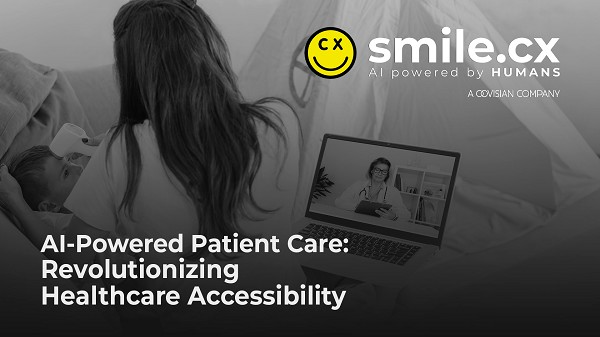Revolutionizing Healthcare Communication: How Generative A.I. is Reshaping Doctor-Patient Dialogue in Healthcare
Unlocking Next-Gen Healthcare: How the Fusion of Medical Expertise and Generative AI is Reshaping Patient Experiences.
Several factors have shaken the healthcare sector in recent years. The COVID-19 pandemic was undoubtedly a catalyst for a new vision of healthcare by patients. Video consultations and remote care became a tangible and efficient reality in 2020.
Meanwhile, governments and healthcare companies are focusing on new intelligent processing systems that are conquering other sectors and their applicability in healthcare procedures.
In the United States, President Biden has commissioned various organizations to research the secure implementation of Artificial Intelligence in healthcare. In the United Kingdom, the National Health Service has allocated over £123 million ($153 million) for the development and evaluation of AI, and an additional £21 million for its implementation. Looking towards Europe, the European Union has earmarked €60 million for research in Artificial Intelligence in the healthcare field and its implementation.
The fast processing of large amounts of information is one of the goals that these healthcare corporations are aiming for. The automation capabilities that Generative AI offers with its intelligent data management would relieve healthcare professionals of repetitive tasks, reducing their workload and increasing productivity.
By deploying advanced linguistic processing and continuously training machine learning mechanisms, Generative AI transforms into a medical assistant capable of generating comprehensive and efficient reports in real-time during consultations. These functionalities are already integrated into user management technology software.
Generative AI also stands out for its remarkable ability to predict and generate innovative information through behavior analysis. Leveraging this anticipatory ability becomes an invaluable asset in the medical technology landscape. Generative AI is already capable of accelerating medical diagnosis, identifying parallel alterations to the ongoing diagnosis, and even suggesting treatments.
The impact of exploiting Generative AI in the healthcare sector will translate into productive improvements as long as it is considered an advisor to healthcare professionals.
With this approach, Generative AI becomes an intelligent assistant for the medical professional. Integrated into the same technological suite and empowered with robust Large Language Models (LLM) that understand and analyze the patient-professional interaction, the doctor receives intelligent and personalized assistance in their own desktop in real-time:
- Co-pilot: The AI suggests specific actions to the doctor in real-time based on the interaction, leaving the final choice in the hands of the professional.
- Information offering: The AI takes care of presenting all the information it has absorbed and summarized from the contact on the same screen, providing the doctor with a summary of the noteworthy data and automatically performing administrative tasks.
While in terms of efficiency and productivity, Generative AI already drives solutions that bring undeniable value to healthcare professionals, corporations, and sector managers, its impact is even more expansive.
The Patient Care Revolution with Generative AI
With the emerging societal shifts driven by the reach of new technologies, it's only logical to consider that patients also anticipate an evolution in healthcare.
As users, accessibility to consultations is a concern. While we can already shop online, watch live streams from other parts of the world, or even interact through virtual twins in the metaverse, receiving healthcare from home has only become accessible during the years of the Covid-19 pandemic.
After this almost inevitable move towards remote care, many healthcare administrations are reconsidering this option. But the trend is clear: "Millennials want to be able to have medical consultations from the same place they order their dinner, which is their couch," explains Tom Lawry, National Director of AI for Health & Life Sciences at Microsoft.
However, the dilemma is not simple. Many patients still prefer in person care in the healthcare center. In both cases, the efficiencies achieved through synergies between humans and AI translate into more personalized, agile, and effective patient care.
With the exhaustive and continuous training of machine learning algorithms, deploying a conversational solution responsible for answering routine queries, providing reminders, scheduling appointments, etc., will unlock new possibilities for healthcare, exponentially reducing its overcrowding.
Assuming information is sometimes also a problem for patients: knowing the next phases of a medical procedure they are undergoing, understanding a diagnosis, managing their medical reports, etc. Implementing an intelligent virtual assistant that simplifies the understanding processes for patients, making them more user-friendly and accessible, generating autonomy and control over their own medical process, is a revolutionary technique of patient empowerment like never before.
The patient care revolution aims to create a connected environment where the user feels attended to at all times and with comfort. Patients will experience the reassurance that doctors, properly assisted and relieved by the power of the AI supporting them, can focus on providing personalized and high-value experiences.





